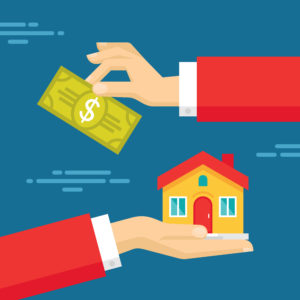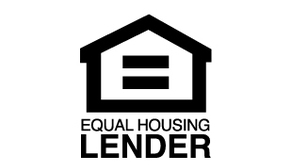So you’ve decided to buy a house. Congratulations! Buying a new home and securing a mortgage can seem intimidating, but this handy overview will assure you of your decision and how to proceed.
The key to skillfully navigating the process of buying a home is proper preparation. These Ten Commandments will help first-time homebuyers prepare to take on this challenge. Finding a house and applying for a mortgage will take some time and attention. Buying a house is a large purchase, so don’t rush it.
Pay special attention to each of these commandments to avoid some of the most common missteps that befall first-time homebuyers. If you need assistance, be sure to consult with your real estate agent or mortgage representative.
1. Be Committed To Purchasing A House
Get your figurative house in order before you start searching for your literal house. Make sure that you can answer these questions:
- Can I afford to buy a house? Consider what’s available in your area and look at what you can safely spend on housing. Remember that you’ll be responsible for repairs, taxes, and homeowner fees.
- Am I ready to maintain a home? Homeownership comes with plenty of perks, but it’s also a lot of work. Are you willing to mow the lawn? Replace the roof?
- Am I ready to settle down in one area? Buying and selling a house costs money and you can protect your investment by staying in your home. Homes appreciate over time, so you might lose money if you need to move around.
If your answers to any of these questions is a no or weak, yes, you’re probably not ready to buy a home. It may be better for you to consider renting until you find yourself in a more secure, permanent situation.
But if your answers are a resounding yes, you’re ready to take the plunge into homeownership. Keep reading to learn how to pick the right house and secure the best mortgage.
2. Verify Your Financial Plan
Decide housing expenses budget. The widely-accepted view is that your housing expenses should account for roughly 30% of your income. Take the time to consider how buying a home will affect your finances and make room for it in your budget.
Budget accordingly. When you buy a new house, you’ll also take on several additional expenses, like repairs, property taxes, homeowner’s insurance, etc. in addition to the mortgage. On the other hand, you’ll also be looking at some tax benefits. Do the math to make sure that these numbers work for you.
Plan for your down payment. There are programs that let you put down as little as 3% of your home loan value, but a 20% down payment is highly recommended. Determine how much you need to put down, and then set that amount aside. You don’t want to scramble to conjure up a down payment at the last moment.
Get your insurance in order. In an ideal world, you’ll also want to make sure that your health, disability, and life insurance are in good order. Covering these expenses makes sure that you’re protected from any catastrophic situations that could cause you to lose your new home.
Prepare your paperwork. Since mortgage loan officers are going to need copies of your bank statements, pay stubs, and two years of W-2s and tax returns (at least), now is an excellent time to put them together so that they’re readily accessible.
3. Have At Least One Earning Family Member
Especially since the mortgage crisis of 2008, mortgage lenders are looking closely to make sure that applicants can handle the monthly payment on their mortgage. Make sure that you have at least one steady source of income to make that consistent monthly payment.
4. Check Your Credit Score Before Applying For A Mortgage
Loan officers will check your credit score to determine your individual credit risk. This information will dictate what mortgage terms and rates a lender can offer you.
The higher your score, the more favorable your terms and monthly mortgage payments will be. By checking your credit score beforehand, you’ll be able to dispute erroneous items and potentially raise your score.
5. Understand What You’re Qualified For
Get pre-approved. Pre-approval means you have conditional approval from a mortgage underwriter, pending a property selection. Pre-qualified means that a loan officer has reviewed your information, so having pre-approval means that you are in a better position to secure your housing.
When you’re pre-approved for a mortgage, you’ll likely have a few options to consider. The interest rates, APRs, and associated costs may vary slightly from lender to lender. Thanks to the Truth in Lending Act, everything will be presented in a straightforward fashion.
It’s helpful to reflect on all the information that you’ve gathered in this process so far. Make sure that you can safely handle this mortgage payment for as long as you’ll have one.
6. Make A List Of What You’re Looking For In A House
How many bedrooms, floors, or bathrooms do you want in your new home? Is a backyard optional or requisite? How many square feet of living space do you need?
Get as specific as you’d like to about your needs and wants in a home. Decide what you can and can’t live without to save time once you and your realtor are looking at houses.
7. Avoid Large Bank Transactions
You’ve already learned how important it is to go into the mortgage qualification process with the highest score that you can. Avoid doing anything—especially making any large purchases—that might affect your credit score. While it may be tempting to buy new furniture or appliances for your new home after you’ve selected a mortgage offer, resist.
Most mortgages take an average of 30 days to process. Right before you close, your loan officer will pull your credit score again. If there’s any significant deviation from the original score, you may lose your mortgage offer at the last moment.
8. Maintain Your Emergency Funds
If you don’t have an emergency fund, you’re not ready for a mortgage. As a homeowner, you’ll need a rainy-day fund more than ever. After all, you never know when you’ll need to spend money for the necessary upkeep of your house.
Don’t deplete your emergency funds to fund a down payment. Doing so would be a recipe for disaster and puts you at a severe disadvantage straight out of the gate. Take your time to prepare for this large purchase. Especially in the early stages of a mortgage, expenses like unemployment or a medical emergency can snowball quickly, so don’t take on this process unless you’re sure that you can handle it.
9. Research The Market And Neighborhood
Research the neighborhoods and local school districts you’re considering to familiarize yourself with what’s available. You can use real estate websites like Redfin or Zillow to get an idea of the local demographics even before you choose a real estate agent.
As you comb through available listings, check the price-rent ratios of potential neighborhoods for signs of a market bubble. Every new home buyer wants their property to appreciate.
10. Avoid Spending The Money You’ve Saved For Your Down Payment
A 20% down payment is highly recommended. Statistically, this amount down provides the most secure footing. While you may qualify for a smaller down payment, beware that these mortgages suffer from a slightly higher rate of default than if you were to put down the full 20%.
If you’re ready for a mortgage, don’t touch the money that you’ve set aside for your down payment. Just don’t do it! You do not want to get to the end of this process and wonder how you will raise the money for your down payment at the last moment.
Conclusion
Buying a house is most likely one of the most significant purchases that you’ll ever make, so be confident that you’re ready to give this process the time and energy that it deserves. Surround yourself with a realtor and mortgage broker whom you trust to walk you through the mortgage process.
One of the recurring themes in these ten commandments is financial discipline. Hopefully, if you’re on the verge of buying a home, this is something that you’ve worked on. That foundation will make the home buying process go more smoothly. If you haven’t practiced much financial discipline up until this point, start now so that you can take ownership of this process.
This list encourages you to take proactive measures at every stage in this cycle so that you come out ahead, with the best home and the best deal for you. If you have any more questions about home buying or the mortgage process in the Chicago area, please reach out to A and N Mortgage.
A and N Mortgage Services Inc, a mortgage banker in Chicago, IL provides you with high-quality home loan programs, including FHA home loans, tailored to fit your unique situation with some of the most competitive rates in the nation. Whether you are a first-time homebuyer, relocating to a new job, or buying an investment property, our expert team will help you use your new mortgage as a smart financial tool.











